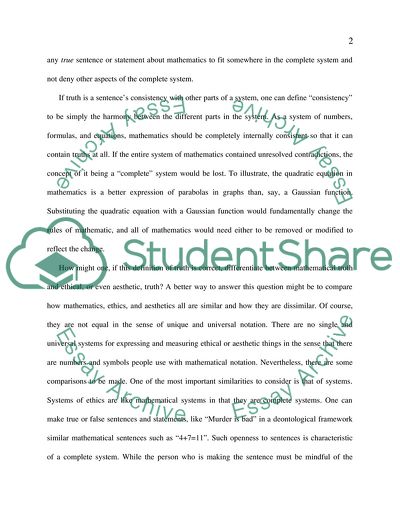Cite this document
(Different Areas of Philosophy: Aesthetics, Ethics, and Mathematics Essay Example | Topics and Well Written Essays - 1250 words - 1, n.d.)
Different Areas of Philosophy: Aesthetics, Ethics, and Mathematics Essay Example | Topics and Well Written Essays - 1250 words - 1. https://studentshare.org/philosophy/1728563-to-what-extent-is-truth-different-in-mathematics-the-arts-and-ethics
Different Areas of Philosophy: Aesthetics, Ethics, and Mathematics Essay Example | Topics and Well Written Essays - 1250 words - 1. https://studentshare.org/philosophy/1728563-to-what-extent-is-truth-different-in-mathematics-the-arts-and-ethics
(Different Areas of Philosophy: Aesthetics, Ethics, and Mathematics Essay Example | Topics and Well Written Essays - 1250 Words - 1)
Different Areas of Philosophy: Aesthetics, Ethics, and Mathematics Essay Example | Topics and Well Written Essays - 1250 Words - 1. https://studentshare.org/philosophy/1728563-to-what-extent-is-truth-different-in-mathematics-the-arts-and-ethics.
Different Areas of Philosophy: Aesthetics, Ethics, and Mathematics Essay Example | Topics and Well Written Essays - 1250 Words - 1. https://studentshare.org/philosophy/1728563-to-what-extent-is-truth-different-in-mathematics-the-arts-and-ethics.
“Different Areas of Philosophy: Aesthetics, Ethics, and Mathematics Essay Example | Topics and Well Written Essays - 1250 Words - 1”. https://studentshare.org/philosophy/1728563-to-what-extent-is-truth-different-in-mathematics-the-arts-and-ethics.


